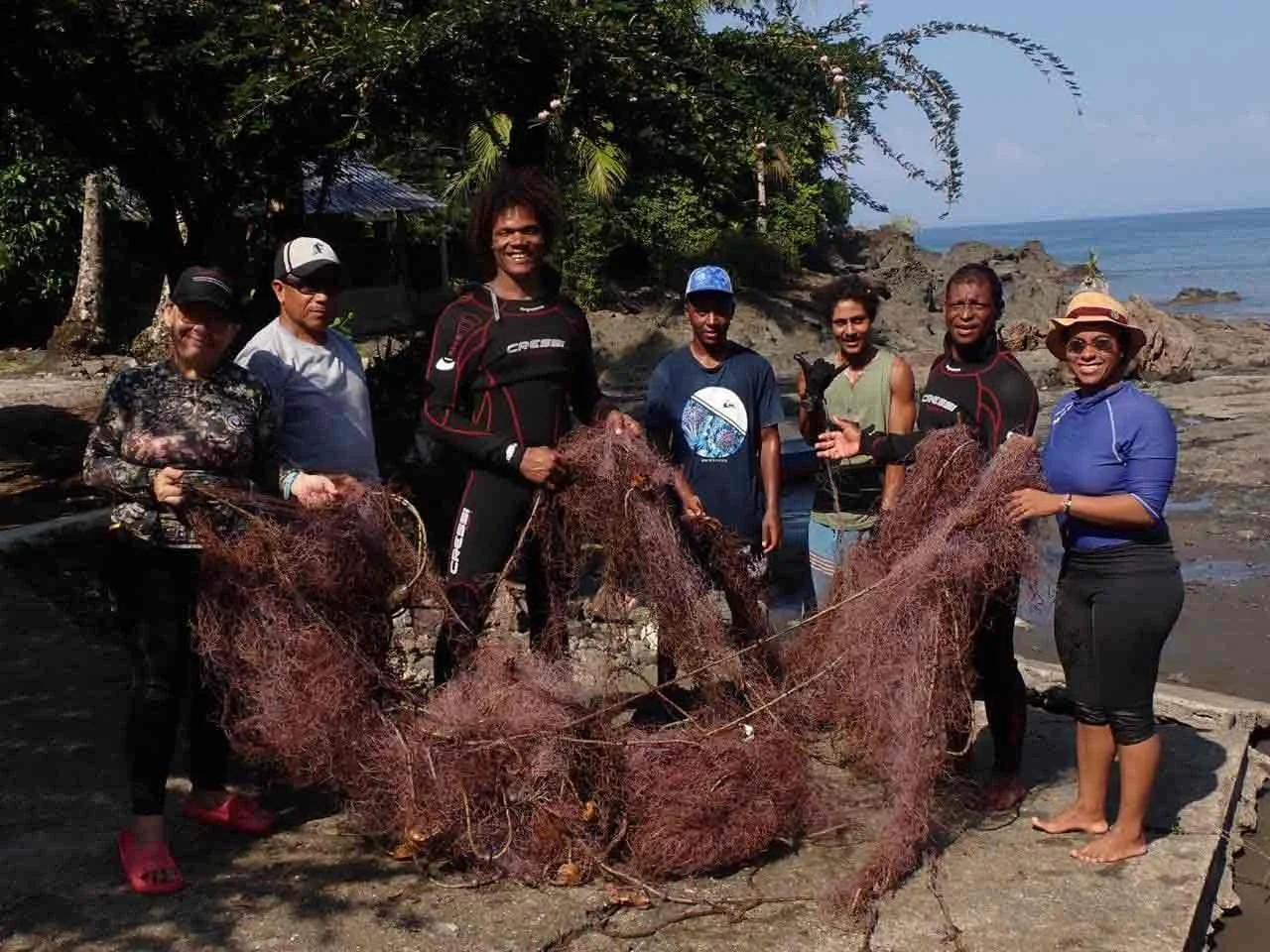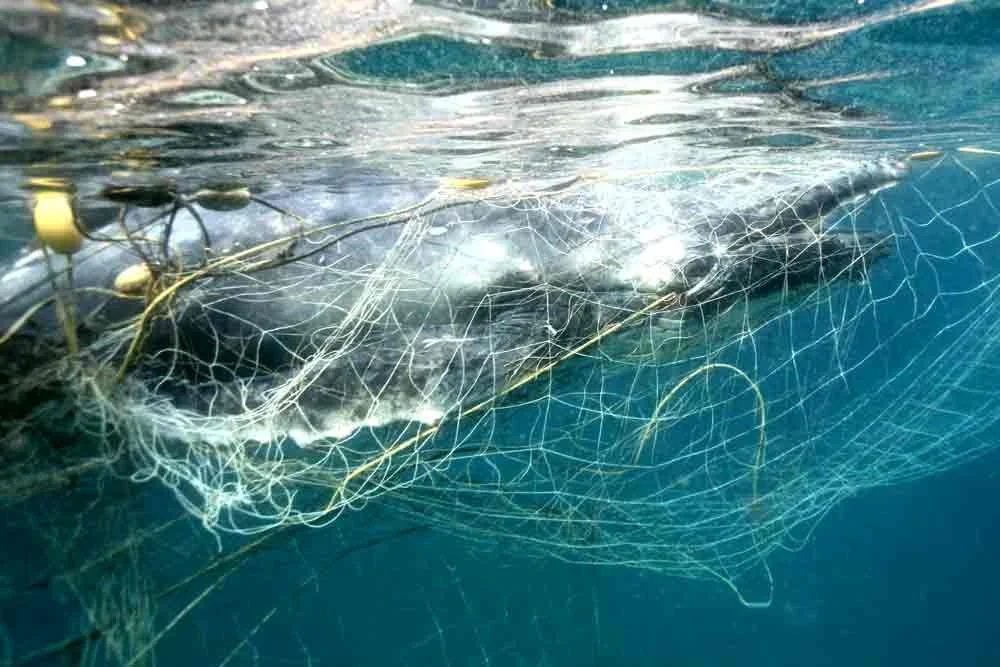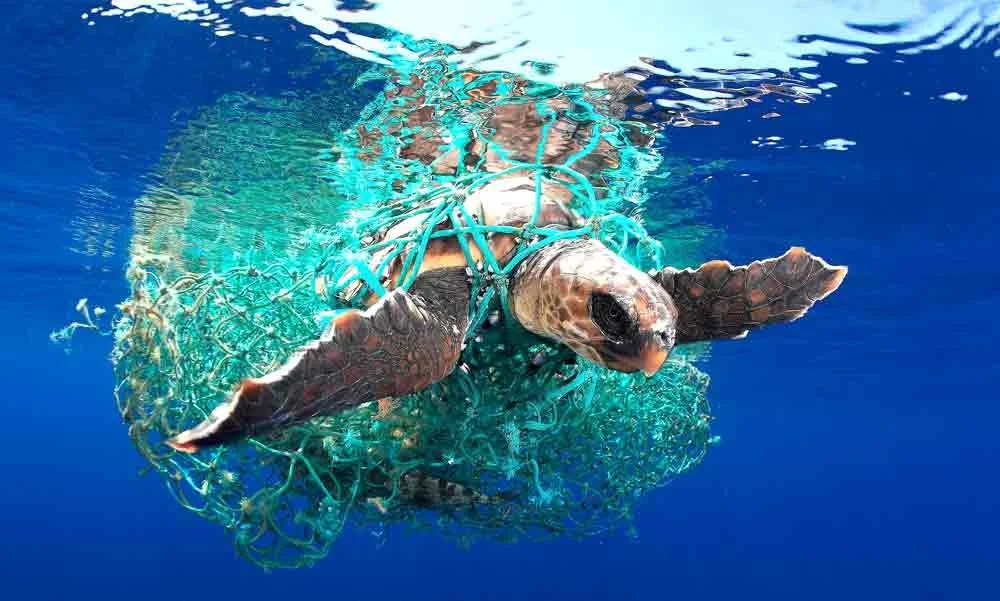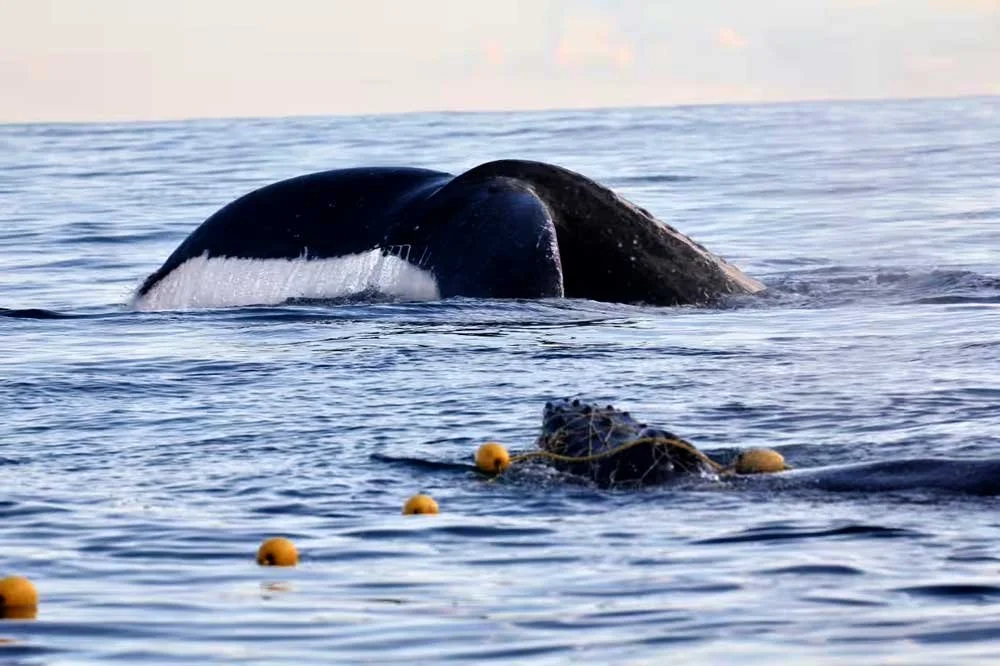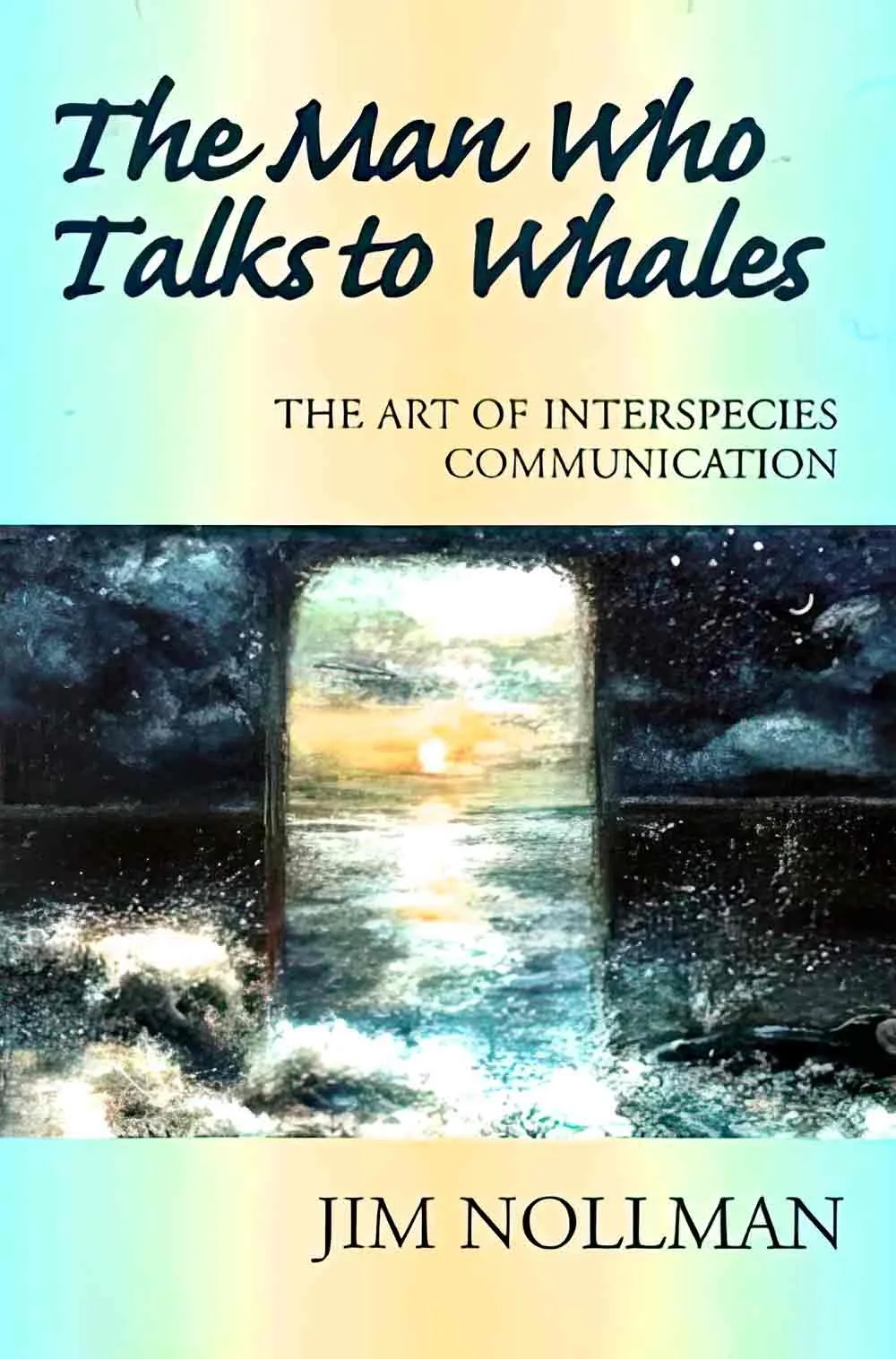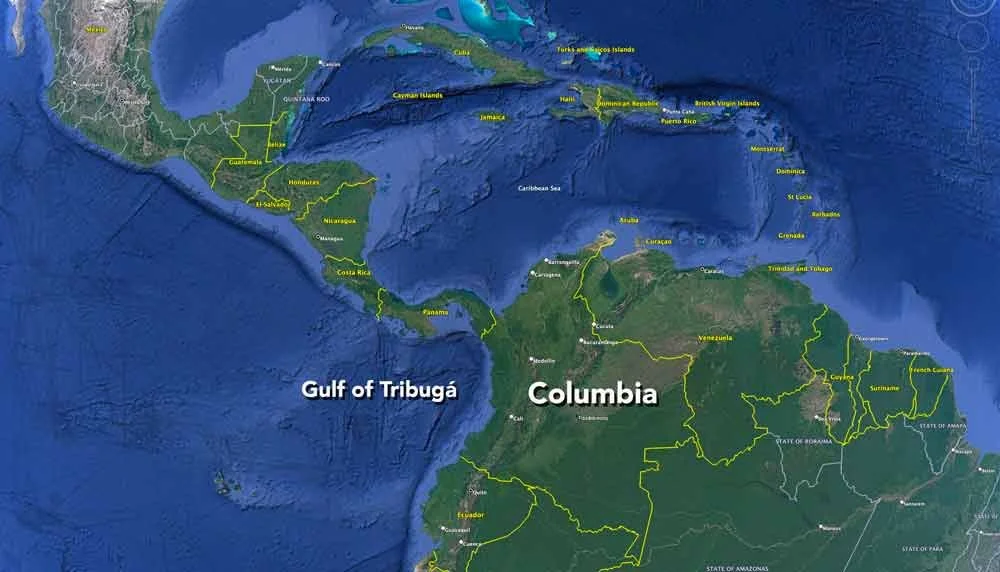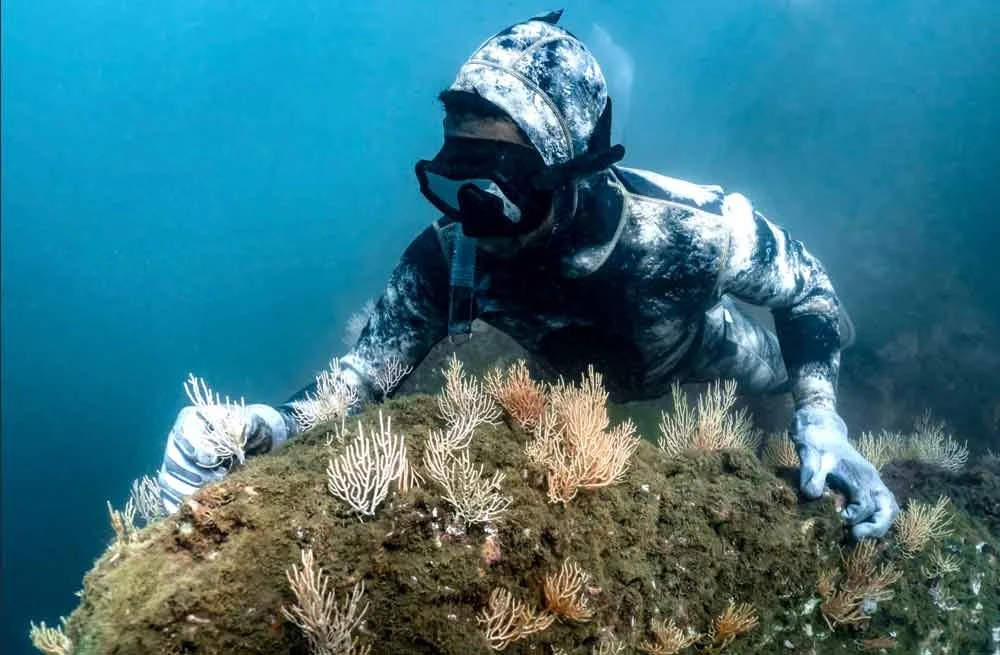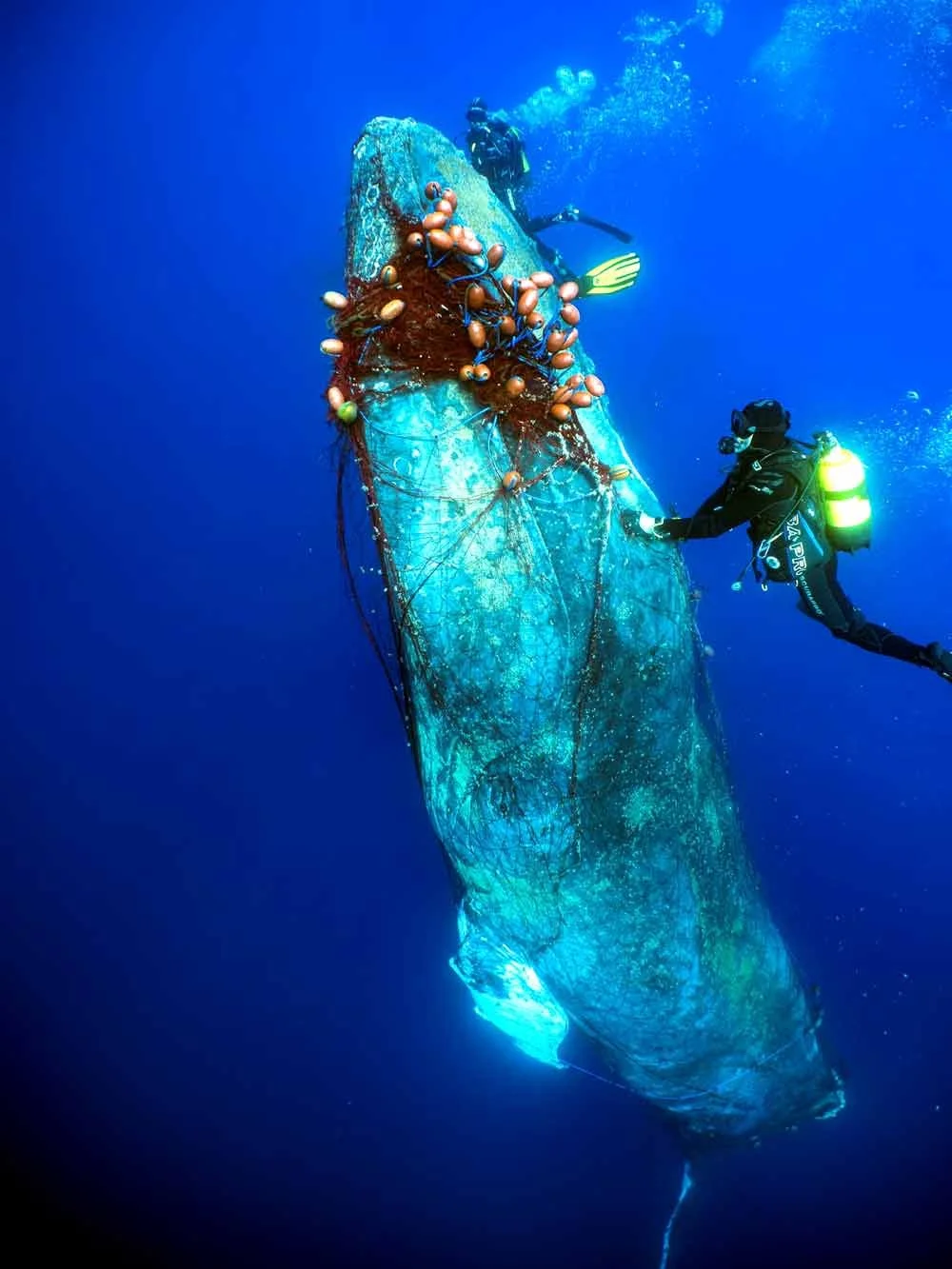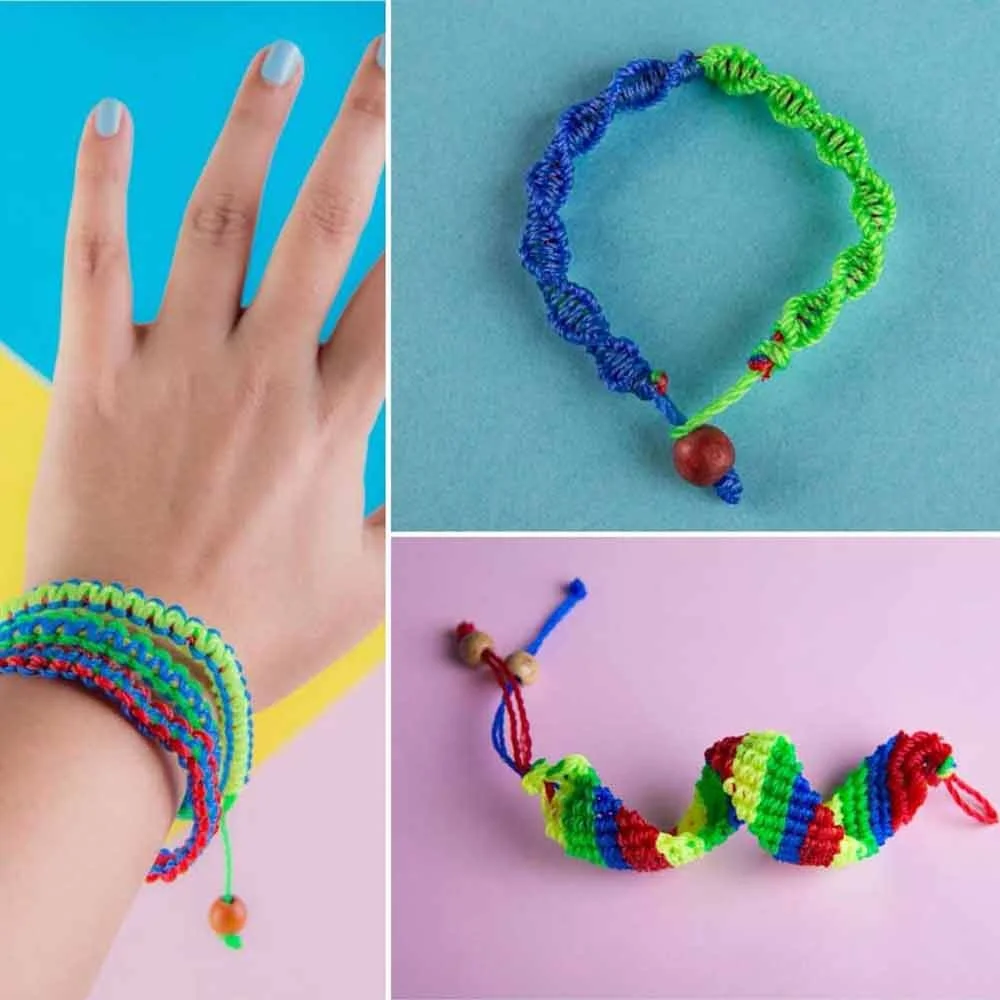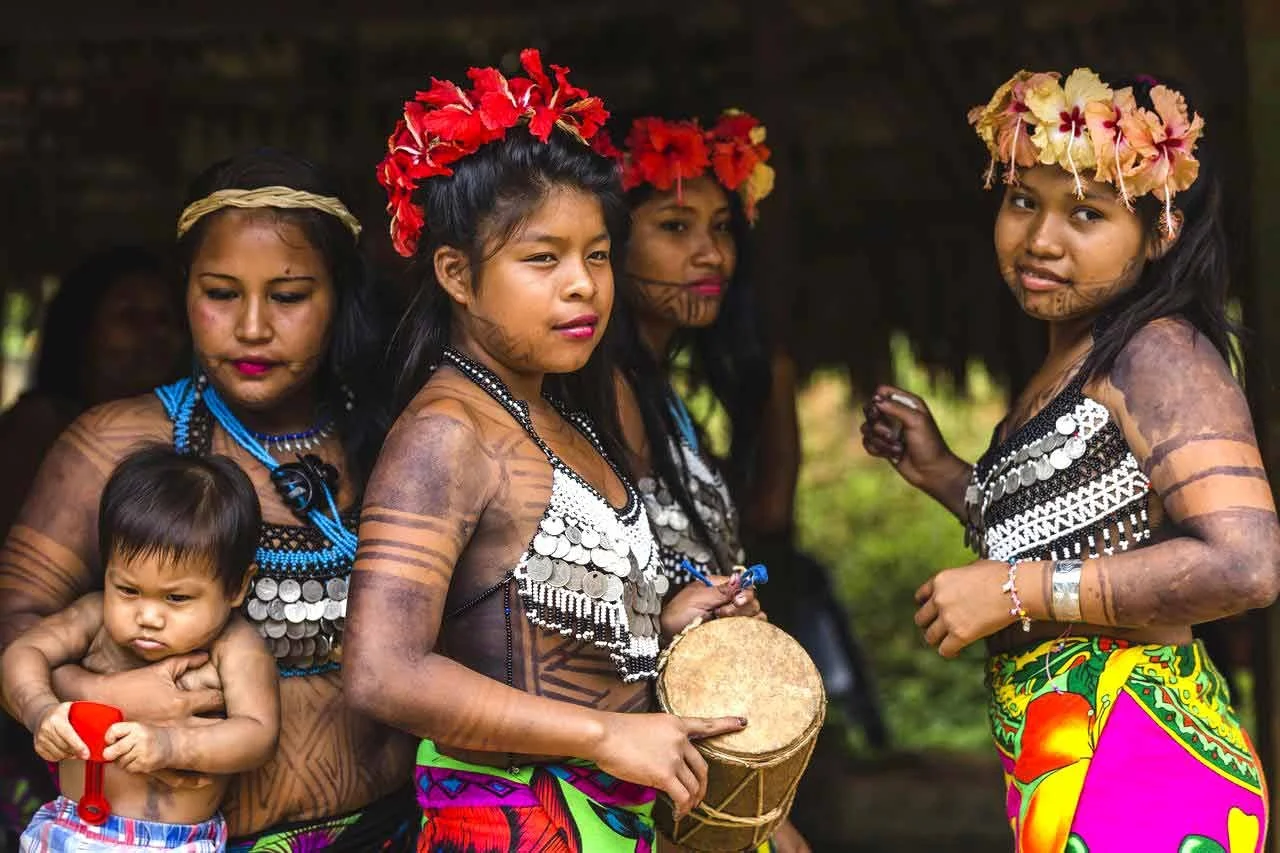Guardians of the Sea
How was the young humpback whale in trouble?
How did Lloreda connect with the whale?
Guardianes del Mar is Spanish. What does it mean in English?
In what country does this rescue group work?
What can be found in Gulf of Tribugá?
What are ghost nets?
Every year, about 50,000 tons of fishing gear gets left in the ocean. This is the same weight as how many elephants?
In the Gulf of Tribugá, how many humpback whales get caught in nets each year?
What do the Guardianes del Mar do with the fishing nets they pull out of the Gulf of Tribugá?
Those who escaped slavery and traveled through the jungle to the coast were welcomed by what indigenous group?
• Read •
Guardians of the Sea
Saving Whales from Ghost Nets
Luis Antonio “Toño” Lloreda had just finished a long day of scuba diving when a friend came running up to him. “Toño, there’s a whale caught in a net!” his friend said.
Lloreda, 43, was tired, but he knew he had to help. He had rescued sea turtles and smaller animals before, but never anything as big as a whale.
The whale in trouble was a young humpback, about four to five meters long. It had a thick fishing net stuck around its fin and mouth. Its mother was nearby, swimming close to her calf.
Getting close to the whale could be dangerous—not just for the whale, but for Lloreda too.
“I had to connect with the whale,” Lloreda said.
“We use something called intuitive communication.” That means using feelings and body language instead of words. Lloreda says he asked the mother whale for permission to help. “At first, she didn’t trust us. But when she saw we meant no harm, she let us help.”
The mother whale swam just underneath the divers. Then Lloreda carefully reached into the young whale’s mouth and pulled the net out. The mother and calf swam away slowly and then paused to rest. It was a moment of relief—and respect.
Guardians of the Sea
Lloreda is part of a group called Guardianes del Mar, or Guardians of the Sea.
They are a team of nine trained divers who come from six small towns along Colombia’s Pacific coast. This area, called the Gulf of Tribugá, is filled with ocean life.
It has coral reefs, mangrove trees, rainforests, and many kinds of sea animals. Because it is so special, scientists have named it a “biosphere reserve” and a “hope spot,” which means it’s an important place for nature and needs protection.
The Guardians dive into the ocean to search for ghost nets. These are fishing nets that have been lost or left behind. Made of tough plastic, they drift in the water and trap animals like turtles, sharks, and even whales.
Ghost nets also damage coral reefs and sea plants. Scuba diving is the only way to find these nets, but diving lessons and equipment are very expensive.
Thanks to support from groups like Ecomares and Conservation International, the Guardians have been trained not only to dive, but to safely remove nets and other trash from the ocean.
Some of them are also coral gardeners and reef scientists who collect information to help protect the underwater world.
Three of the Guardians, including Lloreda, are trained to free large animals like whales when they get trapped in ghost nets.
The Problem with Ghost Nets
Every year, about 50,000 tons of fishing gear gets left in the ocean. That’s about the weight of 8,000 elephants! These nets float from place to place, crossing the borders between countries and creating danger wherever they go.
In the Gulf of Tribugá alone, three to four humpback whales get caught in these nets each year.
Since they officially started their work in 2023, the Guardians have removed more than 120 kilograms of ghost gear. If you count what they’ve done since they began practicing in 2017, that number jumps to 700 kilograms!
But the Guardians say this is just the beginning. They want to train more local divers to help protect the ocean.
A Community That Cares
Diving is only part of the job.
The Guardians also have to figure out what to do with the old nets once they remove them. There are no roads in this part of Colombia, so everything has to be carried by boat or even by plane. At first, they sent the nets to be recycled in a city called Buenaventura, but the fuel costs became too expensive.
Now, they get creative. They turn pieces of old net into bracelets and sell them in the town of Nuquí and in Germany.
• Ghost net bracelets
They also melt down the metal weights from the nets and turn them into new diving gear.
This teamwork is just one example of how people in the Gulf of Tribugá take care of each other and the Earth.
Gulf of Tribugá
About 7,000 people live there. Many are part of African-Colombian communities that were formed by people who escaped slavery and traveled through the jungle to the coast. They were welcomed by the Emberá, an Indigenous group, and now both groups work together to take care of the land and sea.
• The Embera, an indigenous group
This shared leadership helped the community stop a major building project. Years ago, the government wanted to build a giant shipping port in Tribugá. That would have brought roads, factories, and lots of pollution. The community said no.
They had seen what happened in Buenaventura, a city about 200 kilometers to the south. After a port was built there in the 1990s, promises of jobs and better living conditions never came true. Instead, crime and pollution increased.
Many people lost their homes, and protests broke out in 2017 and 2021.
The people of Tribugá didn’t want that future. They wanted something better.
Protecting the Future
Camilo Morante is the youngest Guardian. At 25, he speaks proudly about how the community works together. “Everyone here fishes,” he says. “We can’t just tell people to stop using nets. But we can teach each other about how our actions affect the ocean.”
That is the heart of the Guardians’ mission—not just saving whales, but helping people see how deeply connected we are to the world around us.
Abandoned (adj.) – left behind or given up
Biosphere (n.) – the parts of the Earth where life exists, including land, water, and air
Calf (n.) – a young whale or other large animal
Certified (adj.) – officially trained or approved to do something
Community (n.) – a group of people living in the same place or sharing something in common
Conservation (n.) – the protection of nature and natural resources
Ensnare (v.) – to catch or trap something, often by accident
Environment (n.) – the natural world around us, including land, water, and air
Ghost nets (n.) – fishing nets lost in the ocean that continue to trap animals
Mangrove (n.) – a tree or shrub that grows in salty coastal water
Scuba (adj./n.) – related to diving using special breathing equipment
Stewardship (n.) – the act of taking care of something responsibly
► COMPREHENSION QUESTIONS
— please answer with complete sentences
How was the young humpback whale in trouble?
How did Lloreda connect with the whale?
Guardianes del Mar is Spanish. What does it mean in English?
In what country does this rescue group work?
What can be found in Gulf of Tribugá?
What are ghost nets?
Every year, about 50,000 tons of fishing gear gets left in the ocean. This is the same weight as how many elephants?
In the Gulf of Tribugá, how many humpback whales get caught in nets each year?
What do the Guardianes del Mar do with the fishing nets they pull out of the Gulf of Tribugá?
Those who escaped slavery and traveled through the jungle to the coast were welcomed by what indigenous group?
► From EITHER/OR ► BOTH/AND
► FROM Right/Wrong ► Creative Combination
THESIS — Argue the case that fishing fleets should pay the cost to rescue sea life trapped in ghost nets and other fishing gear.
ANT-THESIS — Argue the case that accidents happen, nets are damaged and lost, and it’s expensive to replace these nets. So it’s not the responsibility of fishing fleets to pay to rescue sea animals.
SYN-THESIS — How might these two pespectives be brought together?

